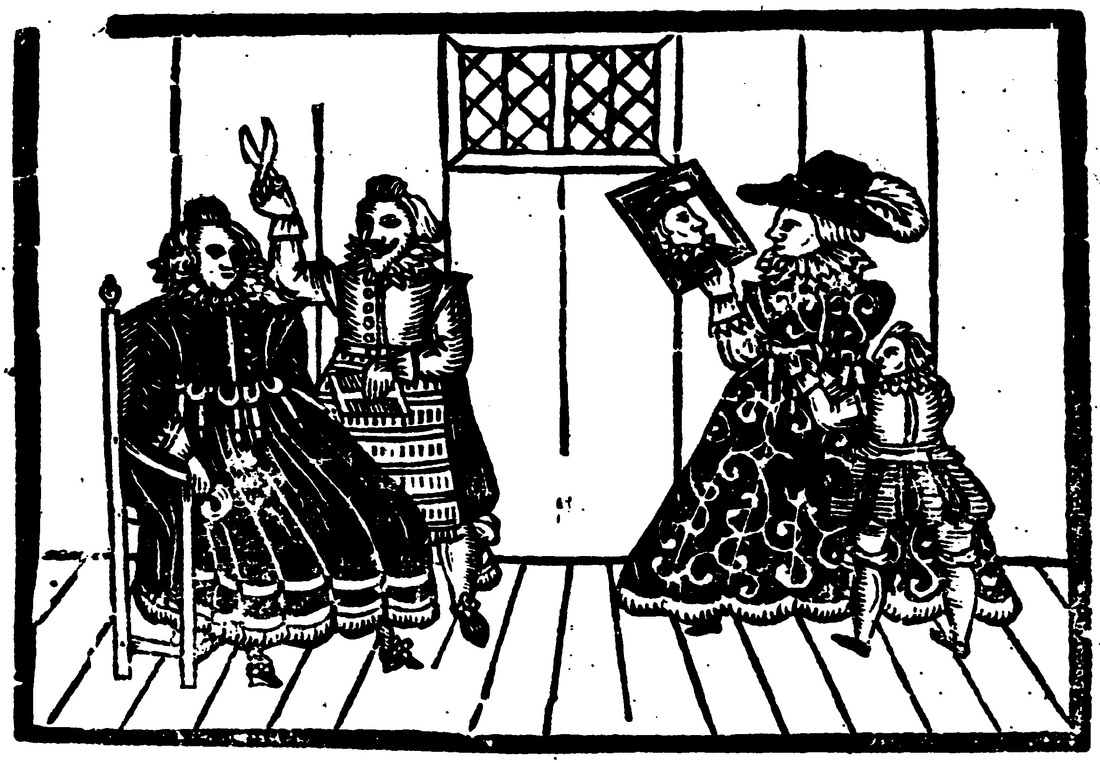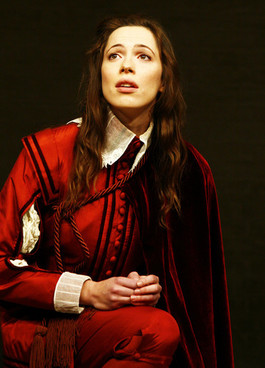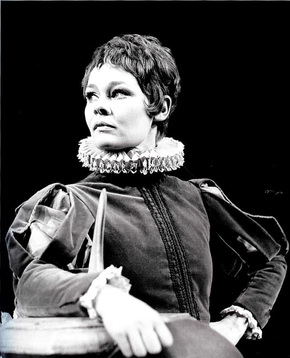So, first of all, I do not think that it is entirely necessary to teach the entirety of Hic Mulier in order to make it productive for high school students. The excerpt in the Norton Critical Edition of The Roaring Girl is just about perfect in length, and it's a great excerpt. Here are some great passages that I like to begin with:
It [the vogue for adopting masculine apparel] is an infection that emulates plague and throws itself amongst women of all degrees, all deserts, and all ages; from the capitol to the Cottage are some spots or swellings of this disease. Yet evermore the greater the person is, the greater is the rage of this sickness; and the more they have to support the eminence of their fortunes, the more they bestow in the augmentation of their deformities…
They swim in the excess of these vanities and will be manlike not only from the head to the waist, but to the very foot and in every condition: man in body by attire, man in behavior by rude complement, man in nature by aptness to anger, man in action by pursuing revenge, man in wearing weapons, man in using weapons, and, in brief, so much man in all things that they are neither men nor women, but just good for nothing.
This actually is a great opportunity to close read Viola's first scene. Here's the pertinent passage:
Viola. O my poor brother! and so perchance may he be [saved].
[Captain says that he thinks he saw Sebastian escape drowning]
Viola. For saying so, there's gold:
Mine own escape unfoldeth to my hope,
Whereto thy speech serves for authority,
The like of him. Know'st thou this country?
Viola. Who governs here?
Viola. What is the name?
Viola. Orsino! I have heard my father name him:
He was a bachelor then.
Viola. What's she?
Viola. O that I served that lady
And might not be delivered to the world,
Till I had made mine own occasion mellow,
What my estate is!
Additionally I ask them to think about the course of the conversation and whether it seems "natural," or if we could imagine that Viola is leading the Captain with certain statements to give her the kind of information that she wants (and/or is paying him for).
Generally speaking, students have two kinds of readings of Viola. They tend to see her as either an optimistic, happy-go-lucky kind of girl who is pretty passive, or they see her as a powerplayer who first turns this Captain into her informant, then sets her eyes on Orsino before even meeting him, and finally takes Olivia out as her potential rival. I've taught this play many times, and it's amusing to me how ardently some students become invested in the idea of Viola as a passive but plucky heroine who stumbles into a situation that she cannot fix and waits for time to "untangle" this knot for her.
Whether we read her as winking at the audience when she later exclaims, "Fortune forbid my outside have not charmed her!" about Olivia's sudden and overwhelming attraction to Cesario, or we see her as genuinely distressed at the "wickedness" of her disguise, we can see that Shakespeare does not assume the same motivations for female cross dressing as the author of Hic Mulier. Viola's decision to cross dress reads as either necessary (to protect herself from bodily harm) or as calculating (to gain access to Orsino), but it is not portrayed as toxic and evil. Even when she later calls herself a monster, she calls herself a "poor monster," which suggests a sympathy entirely lacking from the description of the monstrous "good for nothing" man-woman in Hic Mulier.
This leads to a nice discussion about gender roles for men as well.
If music be the food of love, play on;
Give me excess of it, that, surfeiting,
The appetite may sicken, and so die.
That strain again! it had a dying fall:
O, it came o'er my ear like the sweet sound,
That breathes upon a bank of violets,
Stealing and giving odour!



 RSS Feed
RSS Feed